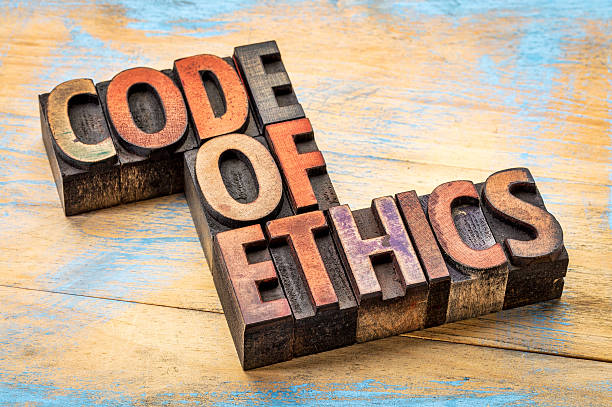 Document
Document
Institutional Code of Ethics
LJKU is committed to achieving academic excellence by offering high-quality education and contributing impactful research that addresses industrial and societal challenges. As such, it expects every member of the LJKU community—including students, faculty, and staff—to uphold the highest standards of academic integrity and research ethics. Academic integrity involves adherence to fundamental academic values and ethical behavior, while research ethics encompass established practices designed to raise awareness of the principles that guide responsible research conduct, ensuring accountability and a commitment to serving society.
This policy applies to all LJKU members involved in research activities and covers the following areas:
-
Research Ethics
-
Anti-Plagiarism Policy
Research Ethics – General Guidelines
-
All faculty members are expected to maintain core values such as honesty, integrity, and sincerity in their research, ensuring that the university’s trust and reputation remain intact.
-
Researchers must retain and preserve raw data from research projects for a minimum of five years with the university, unless a longer retention period is required.
-
The research objectives should benefit both society and industry and must not cause harm to individuals or communities.
-
Research methods should be chosen based on professional expertise and the nature of the study.
-
Researchers must strive to ensure the accuracy of their findings, avoiding falsification, fabrication, or misinterpretation of data.
-
Researchers are responsible for assessing the potential impacts of their research on participants and minimizing any negative effects.
-
Researchers must conduct responsible reporting and dissemination of their findings.
-
Methodologies and results should be open to discussion and peer review.
-
Full credit must be given to prior research and sources of knowledge, data, concepts, and methodologies.
-
Authorship should be determined based on individual contributions to the research, with all contributors acknowledged accordingly.
-
The order of authorship should be agreed upon early in the research process. All authors must read and accept the final paper, taking responsibility for the data, interpretations, and conclusions.
-
The first author should be the most significant contributor, with Master's or Ph.D. students typically taking this role for their respective theses. The supervisor should be the corresponding author.
-
Honorary authorship is not permitted.
-
Authorship should follow the guidelines provided by the journal in which the research is published.
-
University affiliation must be stated according to the prescribed format in publications.
-
Students must obtain approval from their supervisor before publishing any work related to their thesis or dissertation.
-
All patentable inventions must be disclosed to the university.
-
Faculty and staff must update their university affiliation on relevant research platforms like ResearchGate and Google Scholar.
Two panels, one at the school level and another at the university level, will be responsible for overseeing academic integrity and research ethics.
Promoting Academic Integrity and Research Ethics
LJKU periodically organizes training programs to raise awareness of academic integrity and plagiarism prevention for faculty, students, and researchers.
Anti-Plagiarism Policy
Plagiarism is a serious violation of academic integrity and research ethics. It threatens the credibility of both the individual and the institution. LJKU enforces a zero-tolerance policy regarding plagiarism, treating it as a grave offense subject to strict disciplinary action.
Plagiarism refers to the act of using, presenting, or publishing someone else’s work or ideas without proper citation or acknowledgment. This includes copying from any source—whether published, unpublished, or downloaded from the internet—without giving proper credit.
Examples of plagiarism include
-
Presenting someone else’s work as your own.
-
Paraphrasing or copying ideas without citation.
-
Publishing stolen unpublished data without acknowledgment.
-
Failing to properly quote sources.
-
Giving incorrect citations for quoted material.
-
Rewriting sentences by changing words but retaining the original structure without crediting the source.
-
Using excessive portions of someone else’s work, regardless of citation.
-
Self-plagiarism, or reusing one's own previously published work without citation.
-
Manipulating images related to research, which constitutes research misconduct.
-
Presenting the same findings at multiple conferences without proper disclosures.
The policy covers all written and unpublished works produced for LJKU, including academic publications, research papers, patents, theses, and experimental data. It applies to all members of the LJKU community, including students, faculty, and staff. Deans and Heads of Departments are responsible for communicating plagiarism guidelines.
Reporting Plagiarism
-
Supervisors and corresponding authors are responsible for checking documents for plagiarism.
-
Documents must be checked using plagiarism detection software prescribed by the university (e.g., Turnitin) and manually reviewed.
-
If plagiarism is detected, the department head will send a report based on the software results to the relevant faculty members.
-
The IQAC shall also be responsible for monitoring the quality of published and unpublished work including thesis
This comprehensive approach ensures that LJKU maintains the highest standards of academic and research integrity.
